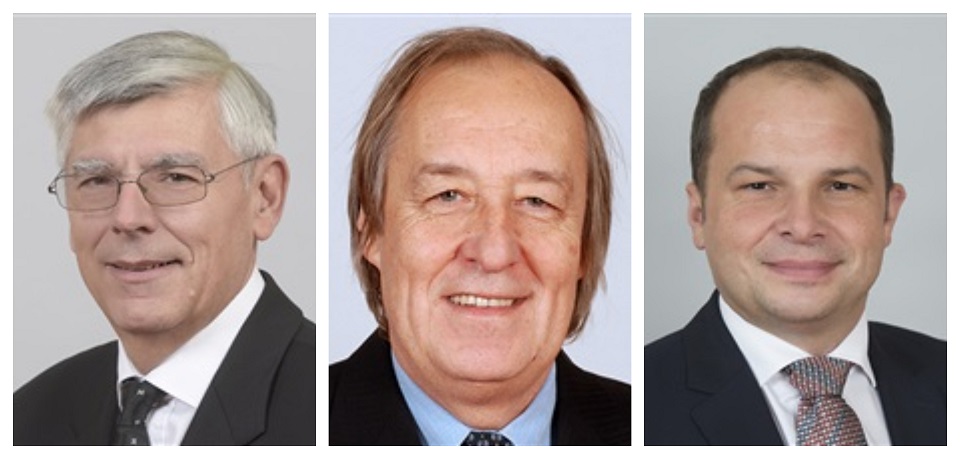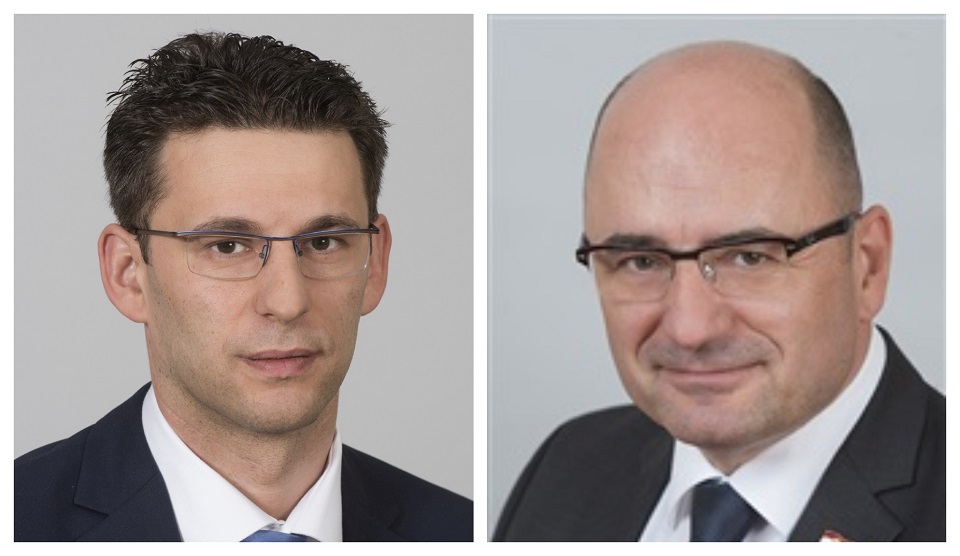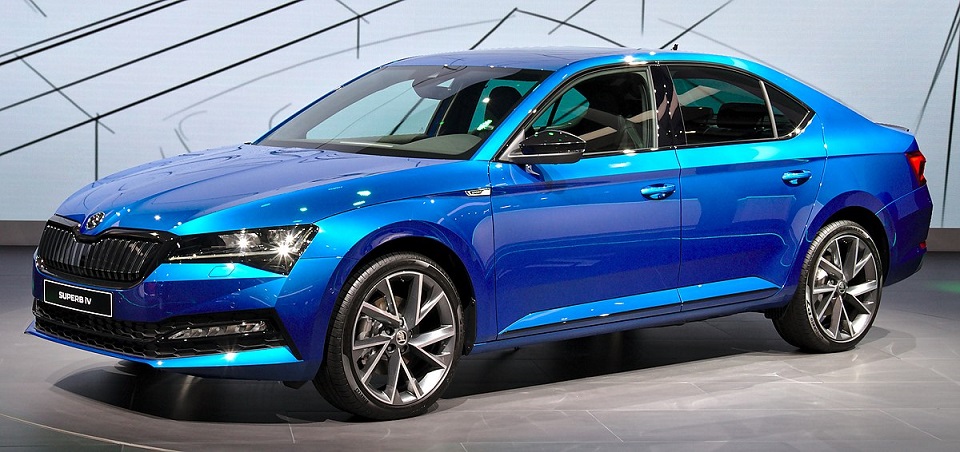Reiner Issues Message on International Day of Persons with Disabilities
ZAGREB, 3 Dec 2021 - Deputy Parliament Speaker Željko Reiner sent a message on the occasion of International Day of Persons with Disabilities on Friday, recalling that more than half a million disabled persons live in Croatia.
The disabled account for 12% of the total population, which is almost three times the population of Split, Reiner said in his message.
"It is up to us to ensure that disabled persons have access to all civil, political, social, cultural and economic rights," Reiner said at the start of Friday's sitting of the Sabor.
"May marking this day fulfil its objective and contribute to improving the quality of life for disabled persons, alleviate the consequences of their social exclusion and raise public awareness of their presence in the community and of the problems they encounter," Reiner said, recalling some of the steps Parliament has taken to assist disabled persons.
Following a motion by MP Ljubica Lukačić (HDZ), since October 2017 plenary sessions of the Sabor that are aired on the public television HRT have been interpreted in sign language, and the rostrum has been adapted for disabled MPs.
Reiner recalled that Croatia was the third country in the world to ratify the Convention on the Rights of Persons with Disabilities. "That shows the ability and need of Croatian society to ensure equal opportunities for this special vulnerable section of the population."
For more news, follow TCN's dedicated page.
State Delegations Lay Wreaths at Mirogoj Cemetery
ZAGREB, 4 Aug, 2021 - On the eve of Victory and Homeland Thanksgiving Day, War Veterans Day and the central commemoration in Knin, state delegations laid wreaths at Zagreb's central Mirogoj cemetery on Wednesday.
The government delegation was led by Veterans' Minister Tomo Medved and a delegation of the Croatian Parliament was led by Deputy Speaker Željko Reiner.
The delegations laid wreaths at the Wall of Pain monument, the Central Cross in the Alley of Fallen Croatian Homeland War Defenders, the grave of Croatia's first president Franjo Tudjman, and at the common grave of unidentified victims of the 1991-95 war.
Wreaths were also laid by a delegation of President Zoran Milanović, led by his advisor on defence and national security Dragan Lozančić, as well as a delegation of the City of Zagreb, led by deputy mayor Luka Korlaet.
Shortly after that, a delegation of the Social Democratic Party (SDP), led by member of the SDP presidency and MEP Predrag Fred Matic, laid flowers and lit candles at the Wall of Pain monument and the Central Cross in the Alley of Fallen Croatian Homeland War Defenders.
For more about politics in Croatia, follow TCN's dedicated page.
Željko Reiner: "Opposition's Motion to Impeach Beroš Won't Succeed"
ZAGREB, 28 April, 2021 - Deputy Parliament Speaker Željko Reiner (HDZ) said on Wednesday that the opposition's motion to replace Health Minister Vili Beroš will not succeed just as previous motions to impeach ministers did not.
"Today, I heard that the opposition will submit a motion on 4 or 5 May to impeach Minister Beroš. Just like all the previous motions to impeach ministers, this one won't succeed either," said Reiner.
Reiner announced that he would put the motion for a no confidence vote on the Parliament's agenda within the deadline foreseen in the Standing Orders.
Asked whether Beroš can make order in the process of vaccination, Reiner said that it would be put in order in the shortest time possible and that sufficient quantities of vaccines had been obtained.
Reiner said that Beroš is doing his job quite satisfactorily and that he needs to be left to do it in peace to the end.
Asked about accusations from the We Can! party that paid seminars are held on information from the National Recovery and Resilience Plan and that some ministers participate in them, Reiner said that any such accusations need to be substantiated with arguments. "I haven't heard a single argument. Those are empty phrases, like many others," he said.
For more about politics in Croatia, follow TCN's dedicated page.
PM Andrej Plenković Calls for Broadest Possible Consensus on National Recovery Plan
ZAGREB, 14 April, 2021 - Prime Minister Andrej Plenković on Wednesday called for "the broadest possible consensus" on his government's National Recovery and Resilience Plan, a document including projects worth more than HRK 49 billion (€6.5bn) in total.
"This is a chance in a generation on which we should reach the broadest possible consensus if we can," Plenković said after presenting the document to lawmakers, rejecting claims by opposition MPs that Croatia was "begging" in the EU.
"We are not begging, but are trying to help Croatia catch up with the countries that have been in the Union longer than us, to be more efficient and faster than we were when the SDP (Social Democratic Party) was in power," the prime minister said in response to questions from SDP MPs.
The SDP's Siniša Hajdaš Dončić said that Croatia, along with Greece, has been allocated the largest amount of money per capita because it is poor. "In the six years of your government, Croatia has become what Kosovo was in the former Yugoslavia," he said.
"We have managed to obtain this amount because we think we need it. This funding will benefit both you and Croatian citizens," Plenković replied.
Željko Reiner of the ruling Croatian Democratic Union (HDZ) said: "The opposition obviously have nothing to contribute. Their thinking is reduced to two mantras: we haven't been given a full document and the money will be used for civil servants and not for the private sector."
"All the money will eventually end up in the private sector, either directly or indirectly," Plenković said.
Responding to the remark made by Domagoj Hajduković (SDP) that MPs were discussing a summary of the plan rather than the full document and that this was happening at the last minute, Plenković reiterated that theoretically the government did not have to present the document to Parliament at all. "We have prepared a good document and explained it. We have consulted the social partners and it has passed the parliamentary committees," the prime minister said.
As for the COVID-19 vaccination campaign, Plenković said that vaccination was necessary in order to bring the present public health care crisis to an end, adding that Croatia had ordered 8.7 million doses of vaccine from different manufacturers.
"We ordered as many doses as we could," Plenković said, stressing that the EU could not have known that there would be so many problems with delivery and reputational problems with some of the vaccines.
Hrvoje Zekanović (Sovereignists) was not pleased with the prime minister's answer. "I don't see why you didn't say that the EU has failed in this regard. It has proved highly inefficient during the corona crisis because there are no vaccines," he said.
For more about politics in Croatia, follow TCN's dedicated page.
Željko Reiner Elected as Fellow of American Heart Association
ZAGREB, March 22, 2020 - Željko Reiner has been elected as a Fellow of the American Heart Association (AHA), the Croatian Academy of Sciences and Arts (HAZU) has said.
Reiner has been elected as a Fellow of AHA for his excellence, innovation and many years of contribution to science, practice and education in the field of cardiology, as well as his leadership in the field of preventive cardiology.
Founded 96 years ago, since 1950 the AHA has been publishing the most renowned cardiology scientific journal in the world, "Circulation", which called Reiner the pioneer of preventive cardiology a few years ago.
Reiner is now a member of the second most significant cardiology institution in the US, but also in the world.
In 2010 he was elected as a Fellow of the American College of Cardiology (ACC), which publishes the "Journal of the American College of Cardiology," the world's most widely read scientific journal in the field of cardiovascular diseases. Reiner has been a member of the journal's editorial board for many years.
As a member of HAZU, the Croatian Academy of Medical Sciences, an Honorary Fellow of the Academy of Medical Sciences of Bosnia and Herzegovina, and a Fellow of the Royal College of Physicians of London, Reiner became the only Croatian scientist and expert who is a fellow of all six renowned institutions.
More science news can be found in the Lifestyle section.
Croatian Vice Presidents Receive Taxpayer Funded Audi A6 Luxury Cars
Croatian taxpayers are financing new expensive Audis for three parliament vice presidents. The monthly payment for each car equals the average Croatian citizen’s take-home pay. The brand-new cars were delivered in December 2019, came with 60-month contracts and a monthly installment of 5541 HRK (744 EUR) per car.
Three of Five Vice Presidents Accepted Audi A6
Three of the five deputies in Croatian Parliament accepted and are driving brand new Audi A6 cars, the Croatian Parliament press office confirmed to Hina. The new cars were offered to four vice presidents, as Božo Petrov (Most) had refused an offer to use an official car earlier.

Željko Reiner (HDZ), Furio Radin (NZ) and Siniša Hajdaš-Dončić (SDP) accepted state-funded Audi 6 luxury cars.
Three Vice Presidents accepted the luxury cars: Željko Reiner (HDZ), Furio Radin (NZ) and Siniša Hajdaš-Dončić (SDP). However not Milijan Brkić (HDZ) kept a previously financed Škoda Superb. Unofficially, Brkić will continue to use the official Škoda Superb, rejecting the new official Audi A6, a model purchased for the vice-presidents less than a year before the end of their terms, according to Novi List on January 15, 2020.
Petrov Does Not Want to Spend State Funds on Most
"I do not want to spend the financial resources of the state, or of all taxpayers, for Most’s party needs," explained Petrov, the only vice-president of Parliament who is also his party's president, in his official car waiver. The official car, he says, was returned a year ago, in January 2019, at the beginning of the European Parliament election campaigns, and he maintained this position during the presidential election campaign.

Božo Petrov (Most) refused Audi A6 and Milijan Brkić (HDZ) will keep state-financed Škoda Superb.
"It makes no sense for me to go around the country in a car which belongs to the state, and use it to promote the objectives of Most," Petrov said explicitly.
Parliament has not revealed the cost of the cars. However, they confirmed that the new cars were delivered in December 2019 after 60-month contracts were signed with a monthly installment of 5541 HRK (744 EUR) for each car. Multiplying the monthly payment by 60 months totals 332,460 HRK (44,654 EUR) for each car. Multiplying that total by three comes to a 997,380 HRK (133,961 EUR) bill for Croatian taxpayers to provide Reiner, Radin and Hajdaš-Dončić with luxury cars.
Vice Presidents Not Asked Before UZOP Audi A6 Procurement
The parliament deputies were not consulted before the new cars were purchased according to the press office statement. And parliament itself does procure them, nor does it manage the fleet for its own needs or those of parliamentary officials.
"These affairs are the responsibility of the Ureda za opće poslove Hrvatskog sabora i Vlade (Office for General Affairs of the Croatian Parliament) and the Government, which also manages the transportation for parliament officials, the government and all its offices, as well as the transportation of foreign delegations and protocol programs," the parliamentary press office explained regarding UZOP duties.
From 2014 to March 2019, UZOP had a “certain number of vehicles” at their disposal which were leased to serve the needs of users and the beneficiaries. These vehicle procurements are based on a public procedure and conducted by the Središnji državni ured za javnu nabavu (Central State Office for Public Procurement) and the framework agreement effective 2013.
In 2018, one year prior to the expiration of this contract, UZOP reported the need to procure new cars through financial and operational leasing to the Central State Office. They specified the car classes prescribed by the government and parliamentary decision on the conditions of use for official cars, mobile phones, etc. and guidelines for fleet management.
According to the decision, the vice presidents of the parliament have a right to use an official upper middle-class passenger category auto, according to the parliament statement regarding the length and details of the car procurement process.

Škoda Superb with a 202,343 HRK (27,178 EUR) price tag.
UZOP Purchased 18 Škoda Superb Autos for Croatian Parliament
Since the public procurement procedures for new vehicles were not completed by end of March 2019, and the older purchased autos under previous contracts had to be paid off, several cars were rented for the interim. Those rentals ended on July 15, 2019 when 18 middle-class Škoda Superb cars were purchased with financial leases.
The parliament press office stated that the complete procedure for the procurement of cars, 27 different classes in this case, was according to regulations, to serve the needs all institutions under the jurisdiction of the UZOP and the Central State Office, which provided the technical specifications for the required car classes (engine power, accessories, etc.)
The Central State Office reviews and evaluates the tenders, makes the selection, and then concludes the framework agreement. Neither parliament, UZOP, nor future users of official vehicles influence this process, the press office emphasizes.
New Audi 6 Cars Shipped in December 2019
The procedure for procuring the Audi A6 cars was published in the Narodne novine (Official Gazette) on September 18, 2018, the car selection decision was made on May 2, 2019. The vehicles were delivered in December 2019.
Follow our Politics page to keep updated on the brands and models of taxpayer-funded cars that top Croatian government officials are driving.
Reiner Attends Ceremony of Emperor Naruhito Enthronement
ZAGREB, October 24, 2019 - Croatian Deputy Parliament Speaker Željko Reiner attended in Tokyo on Wednesday a ceremony organised by Japanese Prime Minister Shinzo Abe in honour of Emperor Naruhito's enthronement, parliament said in a press release.
Emperor Naruhito officially proclaimed his enthronement on Tuesday in front of guests from more than 180 countries.
Reiner briefly met Abe and invited him to visit Croatia.
He also held talks with Foreign Minister Toshimitsu Motegi on Croatia's presidency of the Council of the European Union in the first half of 2020 and the future of the EU. They also talked about Japan-EU relations, notably in light of the Strategic Partnership Agreement which Motegi said was already showing results.
Reiner also met Defence Minister Taro Kono for talks on Croatia's military industry, and Finance Minister Taro Aso, with whom he talked about the Japanese-Croatian Friendship House in Tokamachi and the reconstruction of Nagasaki, linking it to the reconstruction of Croatian towns devastated in the Homeland War.
More news about relations between Croatia and Japan can be found in the Politics section.
Former Speaker of Parliament Becomes Knight of the Holy Sepulchre
He is one of nine new knights.
Parliament Marks 25 Years of Croatian Independence
On 8 October 1991, Croatian Parliament adopted the Declaration of Independence.
Croatian Politicians React to Massacre in Nice
Croatian politician condemn attack which killed and wounded dozens of innocent people.


